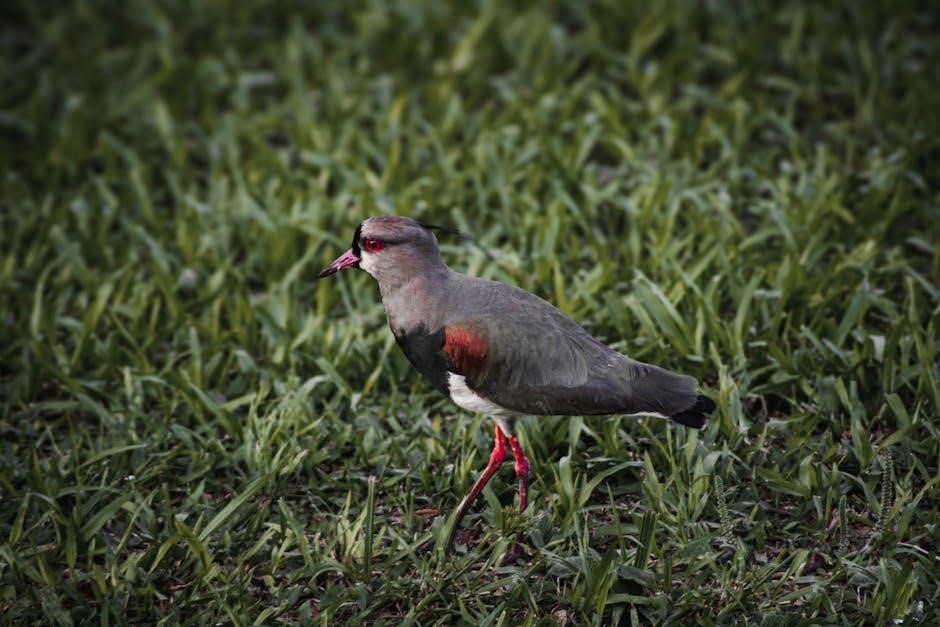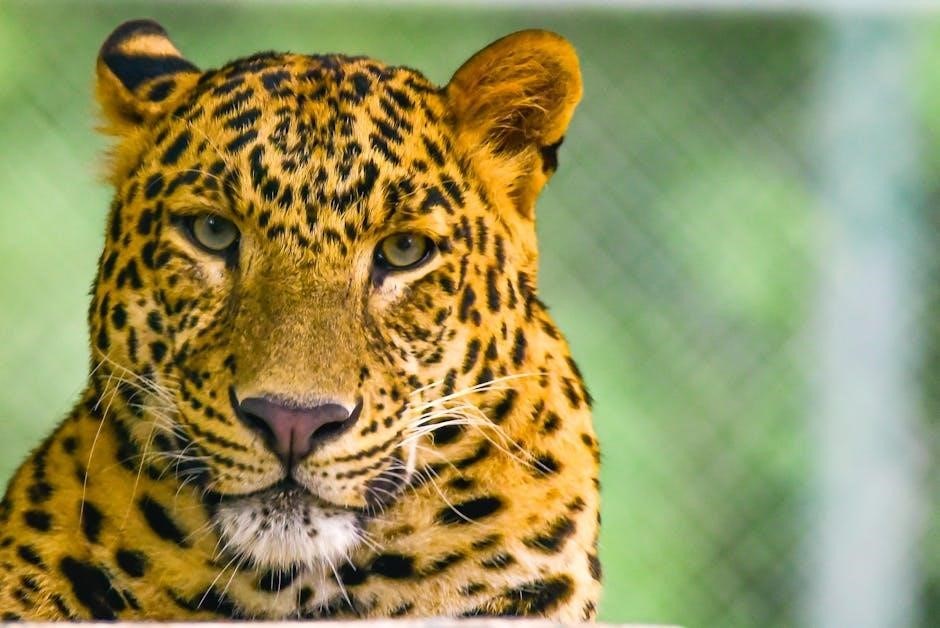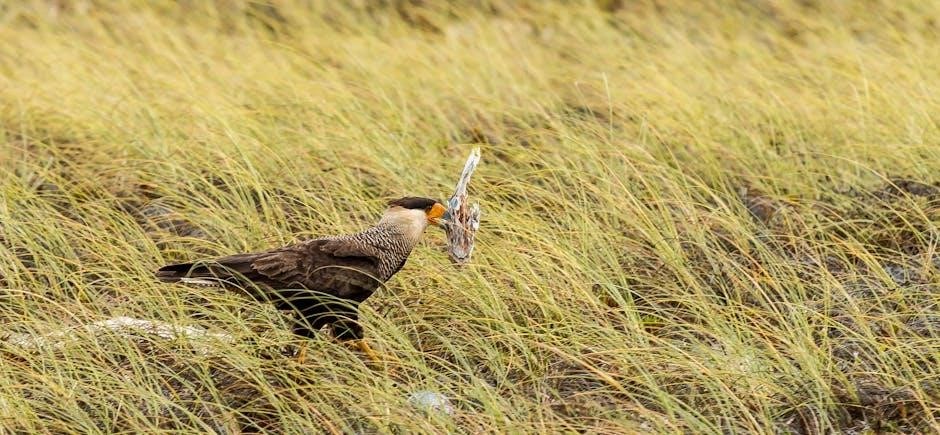Becoming a hunting guide requires a deep passion for the outdoors, extensive knowledge of wildlife, and strong interpersonal skills. Guides ensure safe, ethical, and successful hunting experiences, making their role crucial for both hunters and wildlife conservation. This section explores the foundational steps and qualities needed to pursue this rewarding career.
1.1 Understanding the Role of a Hunting Guide
A hunting guide is a skilled professional who assists hunters in locating and harvesting game safely and ethically. Guides possess deep knowledge of wildlife behavior, habitats, and local terrain, ensuring successful outings. Their role includes tracking, navigating, and interpreting animal signs, while also educating clients on conservation practices. Guides often act as mentors, teaching novice hunters about gear, safety, and regulations. They must be adept at problem-solving and communication, creating a positive experience for clients. The role demands physical stamina, patience, and a passion for the outdoors, making it a rewarding career for those who love nature and wish to share their expertise.
1.2 Importance of Hunting Guides in Wildlife Management
Hunting guides play a vital role in wildlife management by promoting sustainable hunting practices and ensuring ethical harvesting of game. They contribute to conservation efforts by monitoring wildlife populations, reporting data, and educating clients on environmental stewardship. Guides help maintain ecological balance by controlling species populations and preventing overhunting. Their expertise supports responsible land use and habitat preservation, aligning with broader conservation goals. Additionally, guides often collaborate with wildlife agencies, providing valuable insights for informed decision-making. Their involvement fosters a deeper understanding of wildlife dynamics, ensuring that hunting remains a tool for sustainable resource management while preserving ecosystems for future generations.

Educational Requirements for Hunting Guides
A high school diploma is typically required, with courses in biology, ecology, or environmental science beneficial. Many guides pursue higher education in wildlife management or related fields.
2.1 Formal Education and Relevant Courses
While a high school diploma is often sufficient, courses in biology, ecology, or environmental science provide a strong foundation. Many aspiring guides pursue degrees in wildlife management, outdoor recreation, or natural resources to gain advanced knowledge. These programs often include coursework on wildlife behavior, habitat management, and conservation principles. Additionally, classes in first aid, CPR, and wilderness survival are highly recommended to prepare for the demands of the job. Formal education enhances credibility and equips guides with the skills needed to lead safe and successful hunting expeditions.
2.2 Specialized Training and Certifications
Beyond formal education, specialized training is crucial for aspiring hunting guides. Guide certification programs, offered by organizations like the National Rifle Association or state wildlife agencies, teach practical skills such as wildlife tracking, navigation, and safety protocols. First aid and CPR certifications are also essential, as guides must be prepared for emergencies. Additionally, courses in wildlife behavior, habitat management, and local regulations provide valuable expertise. These certifications not only enhance a guide’s competence but also build trust with clients, demonstrating a commitment to professionalism and safety in the field. Specialized training ensures guides are well-equipped to handle the challenges of leading hunting expeditions effectively.

Licenses and Certifications Needed
To become a hunting guide, you must obtain a hunting license, guide certification, and first aid/CPR certification. These credentials ensure legal compliance and client safety.
3.1 Obtaining a Hunting License
Obtaining a hunting license is a critical step to becoming a hunting guide. Requirements vary by region, but most states mandate completing a hunter education course. A federal migratory game bird permit and wildlife habitat conservation stamp are often necessary. These licenses ensure legal compliance and support conservation efforts. Guides must also carry proper identification and proof of certification while hunting. Additionally, staying updated on local regulations and season restrictions is essential. Licenses can typically be purchased through wildlife agencies or online portals, with renewal required annually. Hunters must always carry their license and follow all regional laws to maintain ethical practices.
3.2 Guide Certification Programs
Guide certification programs provide specialized training, equipping aspiring guides with expertise in tracking, navigation, and safety protocols. These programs often combine field training with classroom instruction, focusing on wildlife behavior, habitat management, and ethical hunting practices. Many programs also cover first aid, CPR, and emergency response techniques, ensuring guides are prepared for various scenarios. While not always mandatory, certifications enhance credibility and demonstrate professionalism. They often include practical assessments to evaluate a guide’s ability to lead safe and successful hunting expeditions. Completing a recognized certification program is a key step in building trust with clients and distinguishing oneself in the field.
3.3 First Aid and CPR Certification
First aid and CPR certification are essential for hunting guides, ensuring they can respond to medical emergencies in remote areas. These certifications teach guides how to assess injuries, stabilize patients, and perform life-saving techniques. Many programs include wilderness-specific training, addressing challenges like limited access to medical resources. Guides learn to handle injuries common in hunting, such as wounds, broken bones, and exposure-related illnesses. Certification typically requires completing a course and passing a practical exam. Employers often mandate these certifications, and they significantly enhance a guide’s ability to protect clients and maintain safety during expeditions. Regular recertification is usually required to stay updated on best practices.
Essential Skills for Hunting Guides
Hunting guides must possess strong knowledge of wildlife behavior, habitat, and tracking techniques. They need excellent navigation and safety skills to ensure successful and secure hunting experiences for clients.
4.1 Knowledge of Wildlife Behavior and Habitat
A hunting guide must deeply understand wildlife behavior, including animal migration patterns, feeding habits, and mating seasons. Knowledge of habitats, such as forests, wetlands, and grasslands, is crucial for tracking game effectively. Guides must recognize signs like tracks, scat, and bedding areas to locate animals. Understanding how weather and terrain impact animal movement is also essential. This expertise ensures that guides can lead clients to target species while maintaining ethical hunting practices and promoting wildlife conservation. Continuous learning about local ecosystems and species behaviors is vital for success in this field.
4.2 Tracking and Navigation Skills
Tracking and navigation are essential skills for hunting guides, enabling them to locate game and move safely through terrain. Guides must master reading animal signs, such as tracks, scat, and bedding areas, to predict movement patterns. Proficiency in using tools like GPS, compasses, and maps is critical, especially in vast or unfamiliar areas. Understanding terrain features, like ridges and water sources, helps guides navigate effectively. These skills ensure hunters reach target areas efficiently and safely, while also enhancing the overall hunting experience. Developing keen observational abilities and spatial awareness is vital for success in this role.
4.3 Safety Protocols and Emergency Procedures
Safety is paramount for hunting guides, who must ensure both client and animal well-being. Guides need first aid and CPR certification to handle injuries. They should establish clear emergency plans, including communication strategies and evacuation routes. Knowledge of weather patterns and terrain hazards is crucial to prevent accidents. Carrying essential gear like GPS, two-way radios, and first aid kits is standard. Guides must also teach clients about firearm safety, proper equipment use, and ethical hunting practices. By prioritizing safety, guides minimize risks and foster a positive, responsible hunting experience for everyone involved.
Gaining Practical Experience
Apprenticeships with experienced guides, volunteering for conservation efforts, and hands-on learning are essential for gaining practical experience. These opportunities provide real-world insights and skills development.
5.1 Apprenticeships with Experienced Guides
Apprenticeships with seasoned hunting guides offer invaluable hands-on experience, allowing aspiring guides to learn directly from experts. These mentorship opportunities provide insights into real-world challenges, such as navigating diverse terrains, tracking wildlife, and ensuring client safety. Apprentices gain practical skills in guiding techniques, wildlife behavior, and ethical hunting practices. Additionally, they learn how to manage client expectations, handle emergencies, and maintain professionalism. Working alongside experienced guides helps build confidence and competence, making apprentices well-rounded professionals ready to lead their own expeditions. This hands-on approach is indispensable for mastering the complexities of the role.
5.2 Volunteering for Conservation Efforts
Volunteering for conservation efforts is a powerful way to gain experience and build connections in the hunting community. By participating in wildlife management projects, habitat restoration, and data collection, aspiring guides develop a deeper understanding of ecosystems and animal behavior. These activities often involve collaboration with biologists, rangers, and experienced hunters, offering networking opportunities. Volunteering also demonstrates a commitment to ethical hunting and conservation, which is highly valued by clients and employers. Through these efforts, individuals can enhance their skills, contribute to wildlife preservation, and establish a strong foundation for their career as a hunting guide.

Building a Successful Career as a Hunting Guide
A successful career as a hunting guide demands dedication, continuous learning, and a strong reputation. Building trust with clients and staying updated on industry trends are essential.
6.1 Networking in the Hunting Community
Networking is vital for building a successful career as a hunting guide. Connecting with experienced guides, hunters, and conservationists provides valuable insights and opportunities. Attending hunting expos, joining outdoor organizations, and participating in local hunting clubs can expand your professional circle. These connections often lead to mentorship opportunities, client referrals, and access to prime hunting locations. Additionally, networking helps you stay informed about best practices, new regulations, and emerging trends in the industry. A strong network not only enhances your credibility but also equips you with the knowledge and resources needed to excel in this competitive field.
6.2 Marketing Yourself as a Professional Guide
Effective marketing is essential to establish yourself as a professional hunting guide. Create a professional website showcasing your expertise, services, and testimonials from clients. Highlight your knowledge of wildlife behavior, tracking skills, and safety protocols. Utilize social media platforms like Instagram and Facebook to share hunting stories, tips, and updates. Join online forums and hunting communities to build credibility and engage with potential clients. Consider advertising in local outdoor magazines or sponsoring hunting events. Ensure your marketing materials reflect your commitment to ethical hunting practices and conservation. Building a strong online presence will help attract clients and grow your reputation as a reliable guide.

Staying Updated on Industry Developments
Stay informed about new hunting regulations, conservation efforts, and advancements in gear and technology. Subscribe to industry publications, join professional associations, and engage in continuous learning to remain competitive and effective as a hunting guide.
7.1 Continuous Learning and Professional Development
Continuous learning is essential for hunting guides to stay updated on industry trends and best practices. Enroll in workshops, webinars, and courses to expand skills in wildlife management, first aid, and conservation. Professional development also involves networking with experienced guides and staying informed about new technologies and regulations. Engaging in ongoing education ensures guides provide safe, ethical, and successful hunting experiences while adapting to evolving industry standards and environmental changes. Dedication to lifelong learning enhances expertise and credibility, making guides more valuable to clients and conservation efforts.
7.2 Adapting to New Regulations and Technologies
Hunting guides must stay informed about changing laws, permits, and environmental regulations to ensure compliance and ethical practices. Understanding new technologies, such as GPS tracking devices and thermal optics, enhances efficiency and safety during hunts. Staying updated on advancements in gear and equipment ensures guides can adapt to evolving demands and provide modern solutions for clients.
Adaptability also involves embracing sustainable practices and conservation efforts. By integrating new tools and regulations, guides can maintain professionalism while promoting responsible hunting. Continuous adaptation ensures guides remain competitive and effective in their role, fostering trust and satisfaction among clients.

No Responses